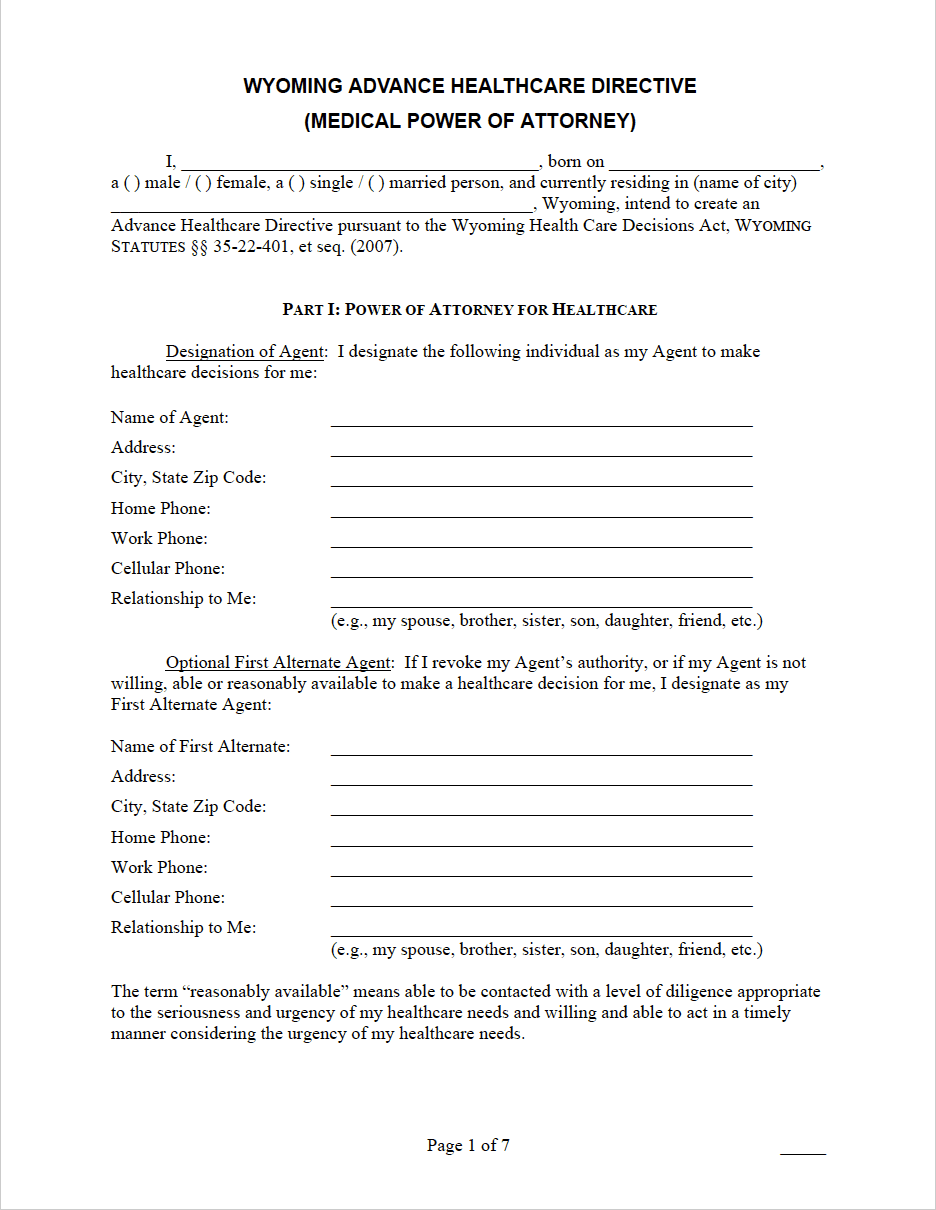Wyoming Advance Healthcare Directive Form
A Wyoming advance healthcare directive is a form that allows the principal to state their medical wishes and elect an agent to carry out their requests. If the principal has not included their preferences for a particular type of care, then it becomes the agent’s responsibility to make the decision on their behalf. When completing the document, the principal must choose if they want the form to go into effect immediately or only if they become mentally incapacitated. Incapacitation means that the principal is experiencing an illness, injury, or disability that has diminished their ability to communicate and make their own health care decisions.
The selected agent must be a trusted family member, friend, or someone close to the principal. However, this person cannot be the principal’s medical provider. The agent should know if the principal has religious beliefs. If so, the agent must base the principal’s medical treatment on their preferences (written in the document) and the moral teachings of the Catholic Church. While not required, the principal can choose two (2) alternate agents to replace the primary agent if they cannot carry out their role. They can also use this form to select the agent as their guardian. If they do not wish to choose the agent as their guardian, they can select another person. However, they do not have to appoint a guardian if they do not want to do so.
The principal can also use this form to choose the following:
- End-of-life care (e.g., artificial nutrition and hydration, pain relief, etc.);
- Visitation from family, close friends, or parish priest;
- Whether or not they die at home or in a home-like place;
- Leave autopsy to the discretion of the physician and agent;
- Organ/body (or body parts)/tissue donation to transplantation, research, therapy, or medical education; and/or
- Their physician and/or alternate physician.
Law: § 35-22-4
Signing requirements (§ 35-22-403(b)): Signed by a notary public OR two (2) witnesses.
